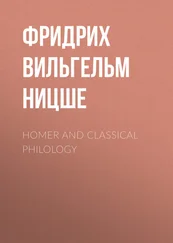Фридрих Ницше - Beyond Good and Evil
Здесь есть возможность читать онлайн «Фридрих Ницше - Beyond Good and Evil» весь текст электронной книги совершенно бесплатно (целиком полную версию без сокращений). В некоторых случаях можно слушать аудио, скачать через торрент в формате fb2 и присутствует краткое содержание. Год выпуска: 2014, Издательство: epubBooks Classics, Жанр: Философия, на английском языке. Описание произведения, (предисловие) а так же отзывы посетителей доступны на портале библиотеки ЛибКат.
- Название:Beyond Good and Evil
- Автор:
- Издательство:epubBooks Classics
- Жанр:
- Год:2014
- ISBN:нет данных
- Рейтинг книги:4 / 5. Голосов: 1
-
Избранное:Добавить в избранное
- Отзывы:
-
Ваша оценка:
- 80
- 1
- 2
- 3
- 4
- 5
Beyond Good and Evil: краткое содержание, описание и аннотация
Предлагаем к чтению аннотацию, описание, краткое содержание или предисловие (зависит от того, что написал сам автор книги «Beyond Good and Evil»). Если вы не нашли необходимую информацию о книге — напишите в комментариях, мы постараемся отыскать её.
Beyond Good and Evil — читать онлайн бесплатно полную книгу (весь текст) целиком
Ниже представлен текст книги, разбитый по страницам. Система сохранения места последней прочитанной страницы, позволяет с удобством читать онлайн бесплатно книгу «Beyond Good and Evil», без необходимости каждый раз заново искать на чём Вы остановились. Поставьте закладку, и сможете в любой момент перейти на страницу, на которой закончили чтение.
Интервал:
Закладка:
241. We "good Europeans," we also have hours when we allow ourselves a warm–hearted patriotism, a plunge and relapse into old loves and narrow views—I have just given an example of it—hours of national excitement, of patriotic anguish, and all other sorts of old–fashioned floods of sentiment. Duller spirits may perhaps only get done with what confines its operations in us to hours and plays itself out in hours—in a considerable time: some in half a year, others in half a lifetime, according to the speed and strength with which they digest and "change their material." Indeed, I could think of sluggish, hesitating races, which even in our rapidly moving Europe, would require half a century ere they could surmount such atavistic attacks of patriotism and soil–attachment, and return once more to reason, that is to say, to "good Europeanism." And while digressing on this possibility, I happen to become an ear–witness of a conversation between two old patriots—they were evidently both hard of hearing and consequently spoke all the louder. "HE has as much, and knows as much, philosophy as a peasant or a corps–student," said the one—"he is still innocent. But what does that matter nowadays! It is the age of the masses: they lie on their belly before everything that is massive. And so also in politicis. A statesman who rears up for them a new Tower of Babel, some monstrosity of empire and power, they call 'great'—what does it matter that we more prudent and conservative ones do not meanwhile give up the old belief that it is only the great thought that gives greatness to an action or affair. Supposing a statesman were to bring his people into the position of being obliged henceforth to practise 'high politics,' for which they were by nature badly endowed and prepared, so that they would have to sacrifice their old and reliable virtues, out of love to a new and doubtful mediocrity;—supposing a statesman were to condemn his people generally to 'practise politics,' when they have hitherto had something better to do and think about, and when in the depths of their souls they have been unable to free themselves from a prudent loathing of the restlessness, emptiness, and noisy wranglings of the essentially politics–practising nations;—supposing such a statesman were to stimulate the slumbering passions and avidities of his people, were to make a stigma out of their former diffidence and delight in aloofness, an offence out of their exoticism and hidden permanency, were to depreciate their most radical proclivities, subvert their consciences, make their minds narrow, and their tastes 'national'—what! a statesman who should do all this, which his people would have to do penance for throughout their whole future, if they had a future, such a statesman would be GREAT, would he?"—"Undoubtedly!" replied the other old patriot vehemently, "otherwise he COULD NOT have done it! It was mad perhaps to wish such a thing! But perhaps everything great has been just as mad at its commencement!"—"Misuse of words!" cried his interlocutor, contradictorily—"strong! strong! Strong and mad! NOT great!"—The old men had obviously become heated as they thus shouted their "truths" in each other's faces, but I, in my happiness and apartness, considered how soon a stronger one may become master of the strong, and also that there is a compensation for the intellectual superficialising of a nation—namely, in the deepening of another.
242. Whether we call it "civilization," or "humanising," or "progress," which now distinguishes the European, whether we call it simply, without praise or blame, by the political formula the DEMOCRATIC movement in Europe—behind all the moral and political foregrounds pointed to by such formulas, an immense PHYSIOLOGICAL PROCESS goes on, which is ever extending the process of the assimilation of Europeans, their increasing detachment from the conditions under which, climatically and hereditarily, united races originate, their increasing independence of every definite milieu, that for centuries would fain inscribe itself with equal demands on soul and body,—that is to say, the slow emergence of an essentially SUPER–NATIONAL and nomadic species of man, who possesses, physiologically speaking, a maximum of the art and power of adaptation as his typical distinction. This process of the EVOLVING EUROPEAN, which can be retarded in its TEMPO by great relapses, but will perhaps just gain and grow thereby in vehemence and depth—the still–raging storm and stress of "national sentiment" pertains to it, and also the anarchism which is appearing at present—this process will probably arrive at results on which its naive propagators and panegyrists, the apostles of "modern ideas," would least care to reckon. The same new conditions under which on an average a levelling and mediocrising of man will take place—a useful, industrious, variously serviceable, and clever gregarious man—are in the highest degree suitable to give rise to exceptional men of the most dangerous and attractive qualities. For, while the capacity for adaptation, which is every day trying changing conditions, and begins a new work with every generation, almost with every decade, makes the POWERFULNESS of the type impossible; while the collective impression of such future Europeans will probably be that of numerous, talkative, weak–willed, and very handy workmen who REQUIRE a master, a commander, as they require their daily bread; while, therefore, the democratising of Europe will tend to the production of a type prepared for SLAVERY in the most subtle sense of the term: the STRONG man will necessarily in individual and exceptional cases, become stronger and richer than he has perhaps ever been before—owing to the unprejudicedness of his schooling, owing to the immense variety of practice, art, and disguise. I meant to say that the democratising of Europe is at the same time an involuntary arrangement for the rearing of TYRANTS—taking the word in all its meanings, even in its most spiritual sense.
243. I hear with pleasure that our sun is moving rapidly towards the constellation Hercules: and I hope that the men on this earth will do like the sun. And we foremost, we good Europeans!
244. There was a time when it was customary to call Germans "deep" by way of distinction; but now that the most successful type of new Germanism is covetous of quite other honours, and perhaps misses "smartness" in all that has depth, it is almost opportune and patriotic to doubt whether we did not formerly deceive ourselves with that commendation: in short, whether German depth is not at bottom something different and worse—and something from which, thank God, we are on the point of successfully ridding ourselves. Let us try, then, to relearn with regard to German depth; the only thing necessary for the purpose is a little vivisection of the German soul.—The German soul is above all manifold, varied in its source, aggregated and super–imposed, rather than actually built: this is owing to its origin. A German who would embolden himself to assert: "Two souls, alas, dwell in my breast," would make a bad guess at the truth, or, more correctly, he would come far short of the truth about the number of souls. As a people made up of the most extraordinary mixing and mingling of races, perhaps even with a preponderance of the pre–Aryan element as the "people of the centre" in every sense of the term, the Germans are more intangible, more ample, more contradictory, more unknown, more incalculable, more surprising, and even more terrifying than other peoples are to themselves:—they escape DEFINITION, and are thereby alone the despair of the French. It IS characteristic of the Germans that the question: "What is German?" never dies out among them. Kotzebue certainly knew his Germans well enough: "We are known," they cried jubilantly to him—but Sand also thought he knew them. Jean Paul knew what he was doing when he declared himself incensed at Fichte's lying but patriotic flatteries and exaggerations,—but it is probable that Goethe thought differently about Germans from Jean Paul, even though he acknowledged him to be right with regard to Fichte. It is a question what Goethe really thought about the Germans?—But about many things around him he never spoke explicitly, and all his life he knew how to keep an astute silence—probably he had good reason for it. It is certain that it was not the "Wars of Independence" that made him look up more joyfully, any more than it was the French Revolution,—the event on account of which he RECONSTRUCTED his "Faust," and indeed the whole problem of "man," was the appearance of Napoleon. There are words of Goethe in which he condemns with impatient severity, as from a foreign land, that which Germans take a pride in, he once defined the famous German turn of mind as "Indulgence towards its own and others' weaknesses." Was he wrong? it is characteristic of Germans that one is seldom entirely wrong about them. The German soul has passages and galleries in it, there are caves, hiding–places, and dungeons therein, its disorder has much of the charm of the mysterious, the German is well acquainted with the bypaths to chaos. And as everything loves its symbol, so the German loves the clouds and all that is obscure, evolving, crepuscular, damp, and shrouded, it seems to him that everything uncertain, undeveloped, self–displacing, and growing is "deep". The German himself does not EXIST, he is BECOMING, he is "developing himself". "Development" is therefore the essentially German discovery and hit in the great domain of philosophical formulas,—a ruling idea, which, together with German beer and German music, is labouring to Germanise all Europe. Foreigners are astonished and attracted by the riddles which the conflicting nature at the basis of the German soul propounds to them (riddles which Hegel systematised and Richard Wagner has in the end set to music). "Good–natured and spiteful"—such a juxtaposition, preposterous in the case of every other people, is unfortunately only too often justified in Germany one has only to live for a while among Swabians to know this! The clumsiness of the German scholar and his social distastefulness agree alarmingly well with his physical rope–dancing and nimble boldness, of which all the Gods have learnt to be afraid. If any one wishes to see the "German soul" demonstrated ad oculos, let him only look at German taste, at German arts and manners what boorish indifference to "taste"! How the noblest and the commonest stand there in juxtaposition! How disorderly and how rich is the whole constitution of this soul! The German DRAGS at his soul, he drags at everything he experiences. He digests his events badly; he never gets "done" with them; and German depth is often only a difficult, hesitating "digestion." And just as all chronic invalids, all dyspeptics like what is convenient, so the German loves "frankness" and "honesty"; it is so CONVENIENT to be frank and honest!—This confidingness, this complaisance, this showing–the–cards of German HONESTY, is probably the most dangerous and most successful disguise which the German is up to nowadays: it is his proper Mephistophelean art; with this he can "still achieve much"! The German lets himself go, and thereby gazes with faithful, blue, empty German eyes—and other countries immediately confound him with his dressing–gown!—I meant to say that, let "German depth" be what it will—among ourselves alone we perhaps take the liberty to laugh at it—we shall do well to continue henceforth to honour its appearance and good name, and not barter away too cheaply our old reputation as a people of depth for Prussian "smartness," and Berlin wit and sand. It is wise for a people to pose, and LET itself be regarded, as profound, clumsy, good–natured, honest, and foolish: it might even be—profound to do so! Finally, we should do honour to our name—we are not called the "TIUSCHE VOLK" (deceptive people) for nothing….
Читать дальшеИнтервал:
Закладка:
Похожие книги на «Beyond Good and Evil»
Представляем Вашему вниманию похожие книги на «Beyond Good and Evil» списком для выбора. Мы отобрали схожую по названию и смыслу литературу в надежде предоставить читателям больше вариантов отыскать новые, интересные, ещё непрочитанные произведения.
Обсуждение, отзывы о книге «Beyond Good and Evil» и просто собственные мнения читателей. Оставьте ваши комментарии, напишите, что Вы думаете о произведении, его смысле или главных героях. Укажите что конкретно понравилось, а что нет, и почему Вы так считаете.












